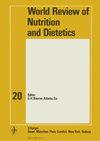Is "small quantity lipid nutrition supplement" (SQ-LNS) a sustainable and pragmatic strategy to prevent malnutrition?
4区 医学
引用次数: 1
Abstract
Young child malnutrition and food insecurity is the result of many factors including social and economic inequities, disempowerment of women, inadequate support for breastfeeding, degraded environments, poor sanitation, unsafe water, violence and conflict. In this complex context, humanitarian agencies have a responsibility to guard against unintended consequences and ensure that the promotion of “quick fix” interventions do no harm. One such intervention is the Small Quantity Lipid Nutrition Supplement (SQ-LNS), that UNICEF is recommending for introduction into national nutrition programs to reduce mortality. The authors believe this recommendation is based on questionable evidence. They point to a fundamental flaw that trials compared “an intervention (SQ-LNS)” with “no comparable food-based intervention.” In effect, a pre-determined outcome. Also present is a conflict of interest, with support and intellectual input coming from interested food companies. Many other concerns are listed: SQ-LNS is an ultra-processed food (UPF), as defined by Nova Classification; daily feeding to children with poor diets will not improve dietary diversity and may undermine confidence in more culturally appropriate and nutritious family foods; the double burden of malnutrition and the emerging pandemic of overnutrition; the environmental impact of packaging and most importantly the clear potential for commercial exploitation. The widespread use of SQ-LNS in the face of food poverty is viewed as an unsustainable, unsafe and nutritionally inappropriate response. UN and humanitarian agencies should use their considerable diplomatic influence to challenge corporate-led food systems and support governments in their efforts to protect, promote and support breastfeeding and the provision of diverse complementary foods.“少量脂质营养补充”(SQ-LNS)是预防营养不良的可持续和实用的策略吗?
幼儿营养不良和粮食不安全是许多因素的结果,包括社会和经济不平等、剥夺妇女权能、对母乳喂养支持不足、环境退化、卫生条件差、不安全的水、暴力和冲突。在这种复杂的情况下,人道主义机构有责任防范意外后果,并确保促进“速效”干预措施不会造成伤害。其中一种干预措施是少量脂质营养补充剂(SQ-LNS),联合国儿童基金会建议将其引入国家营养计划,以降低死亡率。作者认为这一建议是基于可疑的证据。他们指出了一个根本性的缺陷,即试验将“干预(SQ-LNS)”与“没有可比较的基于食物的干预”进行比较。实际上,这是一个预先确定的结果。同样存在的是利益冲突,来自感兴趣的食品公司的支持和智力投入。其中还列出了许多其他问题:根据Nova分类标准,SQ-LNS是一种超加工食品(UPF);每天喂养饮食不良的儿童不会改善饮食多样性,可能会削弱人们对文化上更适宜和更有营养的家庭食品的信心;营养不良和新出现的营养过剩的双重负担;包装对环境的影响,最重要的是商业开发的明显潜力。面对粮食贫困,SQ-LNS的广泛使用被认为是一种不可持续的、不安全的和营养不良的反应。联合国和人道主义机构应利用其相当大的外交影响力,挑战企业主导的粮食体系,并支持各国政府保护、促进和支持母乳喂养和提供多种辅食的努力。
本文章由计算机程序翻译,如有差异,请以英文原文为准。
求助全文
约1分钟内获得全文
求助全文
来源期刊

World review of nutrition and dietetics
Nursing-Nutrition and Dietetics
自引率
0.00%
发文量
114
期刊介绍:
Volumes in this series consist of exceptionally thorough reviews on topics selected as either fundamental to improved understanding of human and animal nutrition, useful in resolving present controversies, or relevant to problems of social and preventive medicine that depend for their solution on progress in nutrition. Many of the individual articles have been judged as among the most comprehensive reviews ever published on the given topic. Since the first volume appeared in 1959, the series has earned repeated praise for the quality of its scholarship and the reputation of its authors.
 求助内容:
求助内容: 应助结果提醒方式:
应助结果提醒方式:


